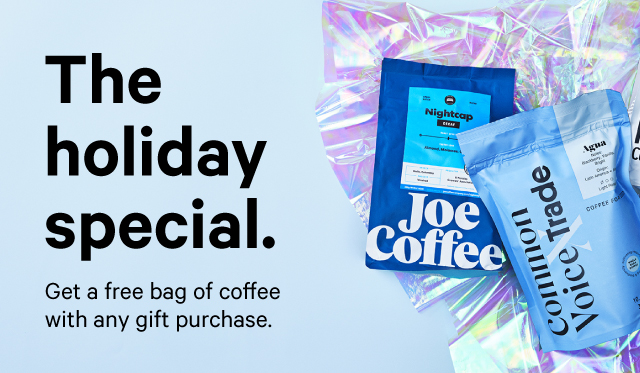As wild as it may sound, there are some folks out there that don’t like coffee. And one of the main reasons I’ve found for some people not liking coffee is that it can be bitter for a non-regular coffee drinker.
Of the major tastes, bitterness is probably the one that gets worst rap. While we do think that bitterness, like most flavors, is useful when in balance, an overly bitter coffee can be a turn off. So we’ve put together a few tips on how to reduce that bitter flavor in your coffee from an overwhelming starring role to a gentle supporting player.
Why Is Coffee Bitter?
The balance of flavors that you get out of ground coffee is most determined by what percentage of the solids in your coffee grounds end up in your cup. Coffee is wildly complex and contains a lot of different flavor compounds. Not only do those different compounds lead to different flavors, but they break down and extract at different rates through a coffee maker, drip coffee machine or another brewing method.
The more you extract… the more the balance of flavors in your cup will tilt towards the bitter side. Leading the taste of the roasted coffee with a potentially undesirable flavor or bad coffee in general.
The coffee bitterness compounds, for example, tend to be heavier and harder to extract than the acidic compounds. That’s why the more you extract, the stronger your coffee will be overall, and the more the balance of flavors in your cup will tilt towards the bitter side. So, if your coffee tastes overwhelmingly bitter or like burnt coffee, you might want to extract less.
How to Make Coffee Less Bitter
Grind Coarser
One way to extract less is to grind coarser. When water hits a coffee ground, it doesn’t magically teleport into the center of that coffee ground. It has to work its way in. So, if you have larger coffee grounds, there’s more work for your water to do, and therefore your coffee will break down slower.
That's why, if your coffee is tasting too bitter, you might just want coarser, larger grind particles. If you brew for the same amount of time, you’ll get less extraction, and therefore less bitterness.
Brew for Less Time
If you can’t or don’t want to change your grind size, you can brew for less time. If you have a French press or an AeroPress for example, both brewing methods in which you fully control the brew time, just cut your brew by 15 seconds. See if that helps bring the bitterness down (while still getting you enough sweetness).
Brew Weaker Coffee
A different approach to reducing bitterness is to brew weaker coffee. It's easy: just use less coffee (or more water) than you usually do. While changing grind size or brew time will affect the balance of flavors more than total flavor intensity, changing the brew ratio will do the opposite. So if you’re fine with reducing acidity and sweetness as well as bitterness, this might be the route to go.
Lighten Up
Finally, if your coffee is too bitter for your liking, it might help to consider your level of roast. Caramelization and the Maillard Reaction, the processes that turns our coffee brown and creates complex flavors, eventually lead to more bitter flavors. By no means does a well-brewed, well-roasted dark roast have to be overly bitter, but if you’re sensitive to that flavor, a lighter roast might be a safer option.







